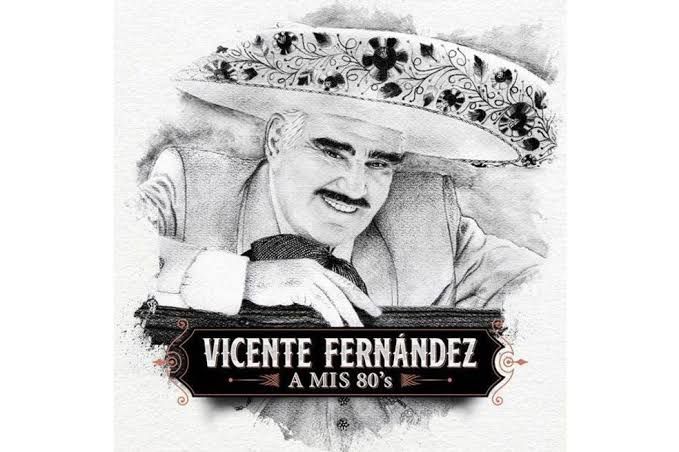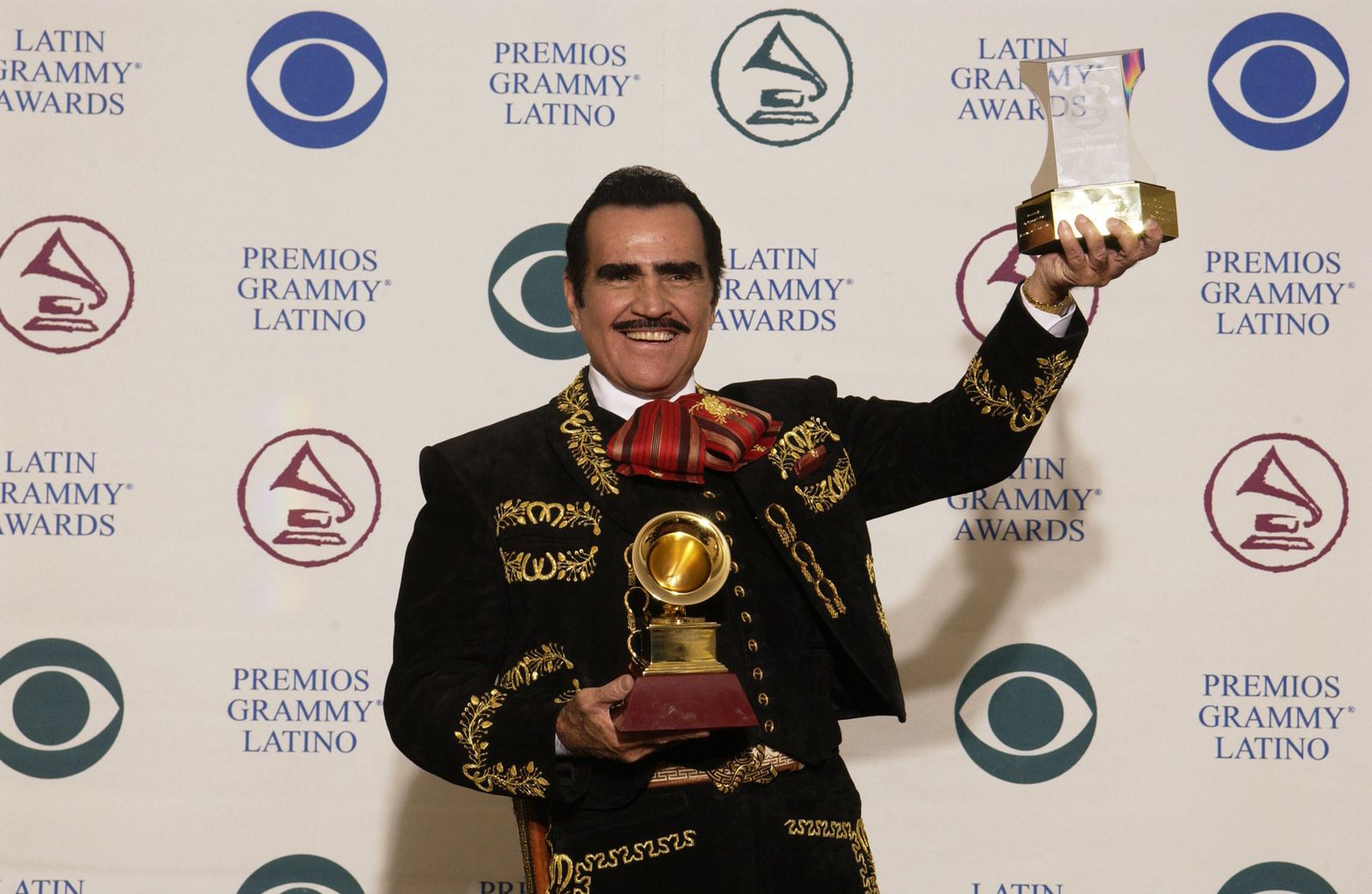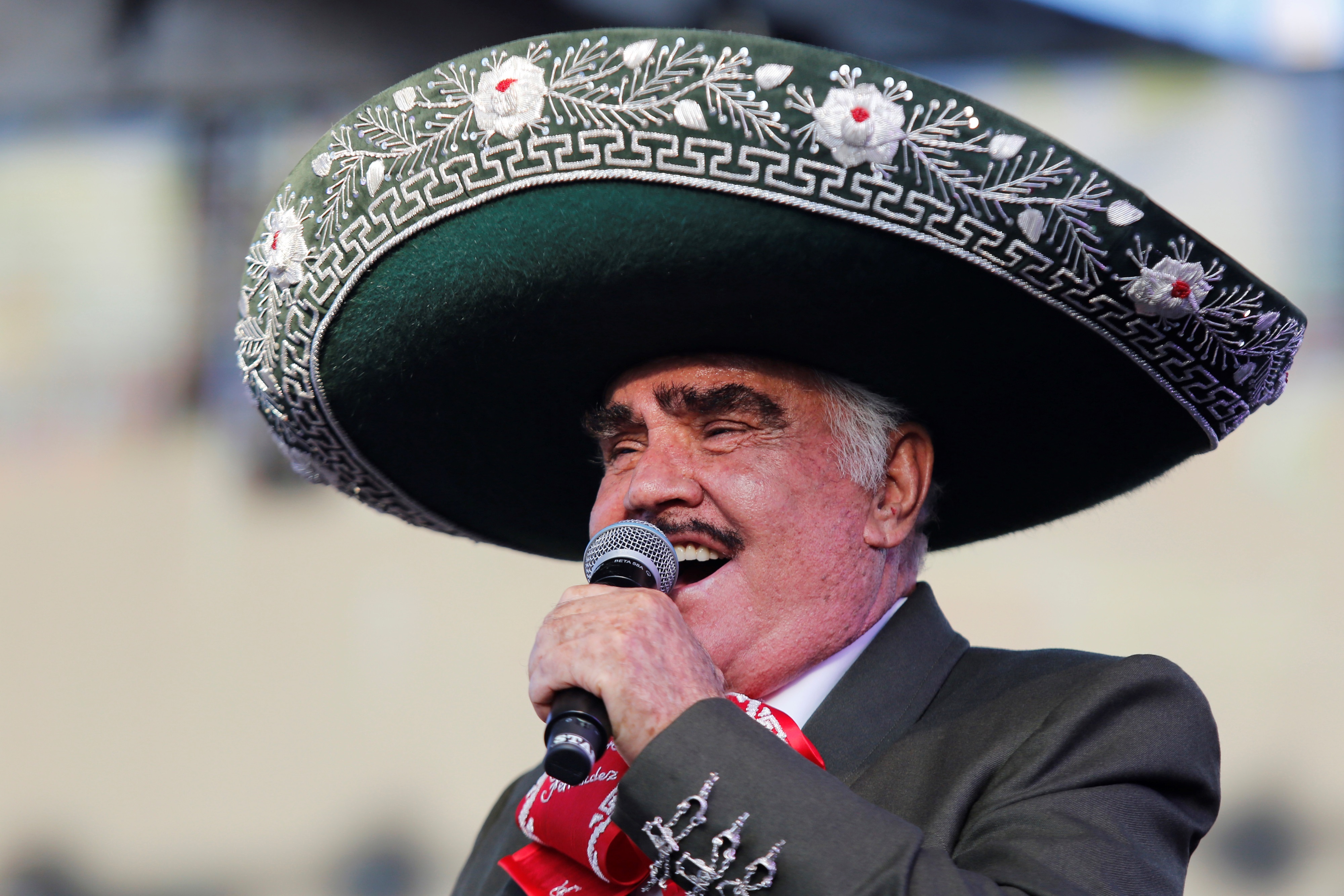
Vicente Fernández, also known as El Charro de Huentitán, won the first posthumous prize of his career, and it could not be another investiture such as the international Grammy Grand Prize, thanks to his latest and latest recording in the studio titled A Mis 80′s.
The title was definitely linked to the moment when he decided to record his production, once he entered his 80s, since the singer from Guadalajara, in Jalisco, was born on February 17, 1940.
The album, beyond what it could about a gift from the Grammy judges to his memory, holds among its songs a lot of stories, characters, feelings and achievements that over 55 years of career we positioned him as “El Rey” of the Mexican regional song.
For starters, we have an excellent work by the musicians and arrangers behind each of the musicalizations. Not only are they a historical rescue for posterity, because the sound they achieved is also a way of modernizing the themes that transcended generations, genres, successes, and not least, a great tribute to the historical composers who made them possible.

To demonstrate this, it is only worth taking a short tour of the history of the chosen songs:
My father's horse by Bulmaro Bermudez, who also wrote Caminos de Michoacán, is really important and reaffirms the singer's taste for national composers.
In addition, there could be an interesting reading of it, as it is a kind of song about the change of office in the Fernández dynasty, since it is about the teachings and memories that he would leave in his family, and especially those who dedicate themselves to music.

It's not the only family dedication. The album also closes with the poem A mi nieto by Delfín Sánchez Juárez, dedicated to each of the daughters and sons of their offspring.
Nor is it the last collaboration of any family member within the album, since the cover, back cover and art of it, is the pictorial work titled “Mi Padre” by his daughter Alejandra Fernández.
A musical jewel seasoned with familiar touches, which leaves no doubt what Vicente Fernández considered much more sacred than music, success, money, touring and sales: his wife, his children, his grandchildren.
And on the part of the great classics, we have songs like La Barca, by the legendary composer Roberto Cantoral García, and performed by other great performers of the stature of Luis Miguel.

I forgot again, registered with the Society of Authors and Composers of Mexico (SACM) by Alberto Aguilera Valadez, better known as Juan Gabriel in the world of musical entertainment.
Luz de Luna, on the other hand, is a composition by the famous Álvaro Carrillo Alarcón, originally conceived as a double step that was soon adorned with the music of mariachi, the northern one, among others, in the voice of singers such as Chavela Vargas, Flor Silvestre, Javier Solis, among others.
Mexico Lindo y Querido, one of the most requested songs from Charro de Huentitán, written by composer Jesús Monge Ramírez, and brought to the peak of national and international fame by Jorge Negrete.
Cielo Rojo, by Juan and David Torres Záizar, is one of the songs that you have surely heard at any mariachi party, in a bar, in a canteen or in Garibaldi, among many other venues. Without a doubt, a success.

But when it comes to gathering legends, the second song, Corazón Corazón, is one of José Alfredo Jiménez's most outstanding rancheras.
There are also a couple of songs by Juan Gabriel, who paid a well-deserved tribute as one of the great composers of rancheras. The themes are No longer insist heart and I swear I will never come back”
Finally, we also have the famous composer of ballads and tickets, Ángel Agustín María Carlos, or simply known as Agustín Lara and nicknamed El Flaco de Oro, a native of Tlacotalpan Veracruz. The theme chosen by El Charro de Huentitán was Janitzio.
The album then, in addition to being a musical, vocal and interpretive excellence, is an important work of preserving Mexican music and its greats, which have survived the passage of time, and will surely hold up for several generations yet. A more than deserved Grammy.
KEEP READING:
Últimas Noticias
Debanhi Escobar: they secured the motel where she was found lifeless in a cistern
Members of the Specialized Prosecutor's Office in Nuevo León secured the Nueva Castilla Motel as part of the investigations into the case

The oldest person in the world died at the age of 119
Kane Tanaka lived in Japan. She was born six months earlier than George Orwell, the same year that the Wright brothers first flew, and Marie Curie became the first woman to win a Nobel Prize

Macabre find in CDMX: they left a body bagged and tied in a taxi
The body was left in the back seats of the car. It was covered with black bags and tied with industrial tape
The eagles of America will face Manchester City in a duel of legends. Here are the details
The top Mexican football champion will play a match with Pep Guardiola's squad in the Lone Star Cup

Why is it good to bring dogs out to know the world when they are puppies
A so-called protection against the spread of diseases threatens the integral development of dogs




